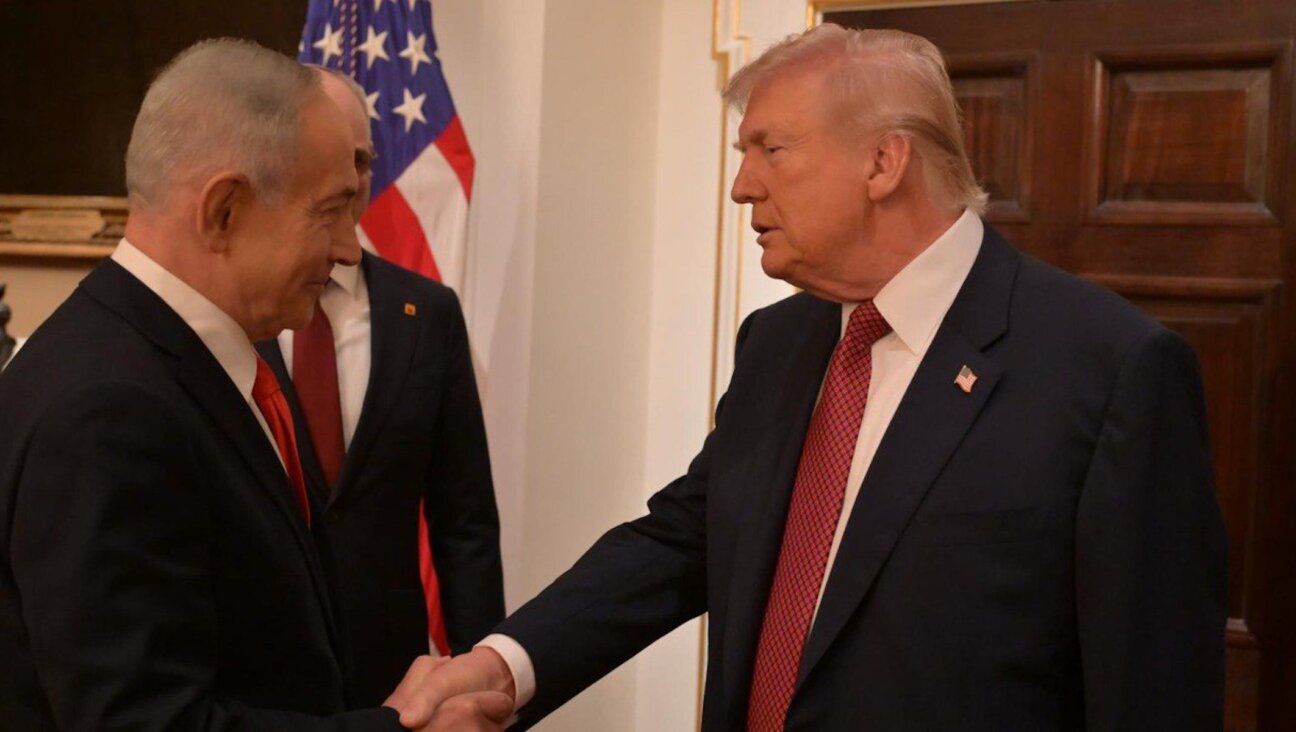Why I Came to the Capitol To Protest Gun Violence — As a Rabbi

Image by Getty Images
Despite promises to myself that I wouldn’t check Facebook after 9 pm, there I was at midnight opening it up once again on my phone. The top photo on my newsfeed was of a friend protesting outside the Capitol for Congress to do something about gun violence in our country. I texted her to see if there was anything I could do to be helpful. She responded: “Come.”
That’s why I came.
As I walked past the Supreme Court and turned right onto Independence Ave, I heard the chant “No Bill, No Break” echo off the stairs of the Capitol. I saw a group of hundreds of protestors circled around Minority Leader of the House Nancy Pelosi. Representative after representative rushed from the Capitol to our gathering and back, sharing encouraging words like “We can hear you in there” and “You give us the energy to keep going.” I felt history unfolding before me, and I felt a part of it.
That’s why I came.
As the night shifted into morning, I thought about the last time I was up this late. It was less than two weeks ago – the night of Saturday, July 11. The holiday of Shavuot. I stayed up all night studying the Torah, which begins with the question “Am I my brother’s keeper?” and ends with God commanding us to choose life. That same night was also the night of the Orlando massacre. If I can stay up all night learning Torah, I can surely stay up all night to support the values that are reflected in it.
That’s why I came.
Earlier that night I taught a class on this week’s Torah portion, B’ha’alotcha. The Ishbitzer Rebbe, commenting on the verses about traveling and encamping in the desert, explains that this represents two different ways of being in the world. There are times when we need to “encamp” – to lay low, to turn inward and to make space for God’s light to enter. But there are other times when we need to “travel” – when we need to leave what is comfortable and enter the unknown in order to elevate the divine sparks that can be found there. This felt like a moment to “travel.”
That’s why I came.

Image by Getty Images
Earlier this week I had lunch with two other D.C. rabbis. We talked about the eglah arufah – the slaughtered calf upon which the ancient Israelite community leaders would state, in response to an unsolved murder: “Our hands did not spill this blood.” This ritual sacrifice reflects a sense of collective responsibility that doesn’t just apply to ancient Israel. Can our Congress make that same claim today in the wake of yet another mass shooting? I don’t think so. This passage is a call to action to hold our own communal leaders to this standard.
That’s why I came.
Yet when the organizers invited us to come into the middle of the circle to share why we came, I stood back. I listened to why others came. I listened to the mother of Jordan Davis; her 17-year-old son was shot 10 times in 2012. I listened to a woman who was raped at gunpoint. I listened to another woman whose stalker could buy a gun pretty much anywhere in this country. I listened to a teacher whose star student was murdered at age 18. I listened to relatives and friends of victims of gun violence share story after story about the terrible consequences of easy access to guns. I felt their fear. I felt their anger. I felt their pain.
And that’s really why I came.
Rabbi Aaron Potek serves Jewish 20s and 30s in Washington, D.C.
















